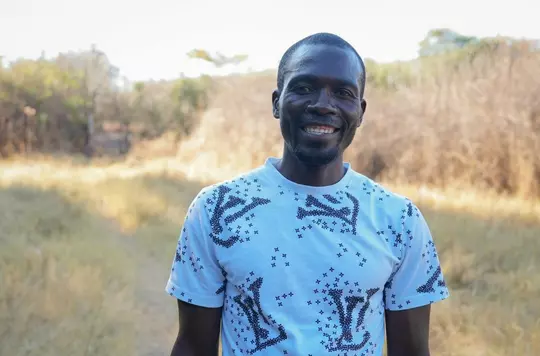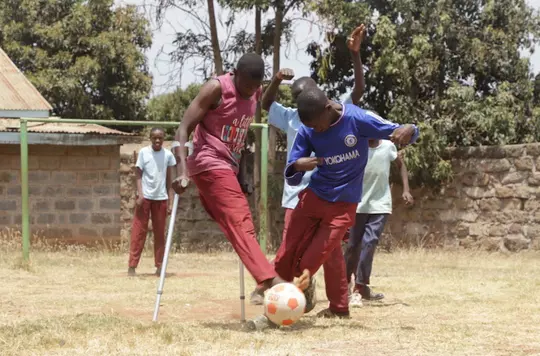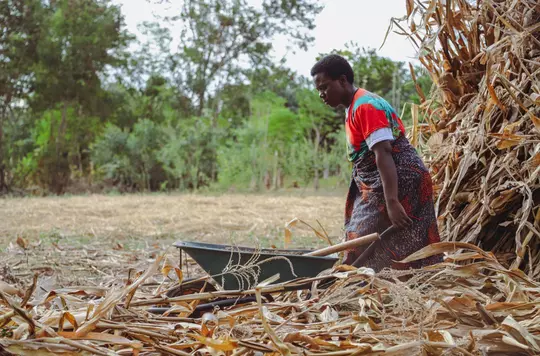Hayley Still introduces the 2023 Helping-Hand Appeal.
What do you do when you are thirsty? For many of us, the answer is simple: we turn on the tap and out streams a seemingly unlimited supply of clean, safe water. But this is not the case for everyone.
Water scarcity is a growing issue with 1.42 billion people – including 450 million children – living in areas of high or extremely high water vulnerability.
Around the world, The Salvation Army is present in many communities where people feel the impacts of water scarcity daily. One such place is the Karonga district in northern Malawi. Here, The Salvation Army has worked alongside community members to find a solution to the water and sanitation crisis. As a result, a large-scale water, sanitation and hygiene (Wash) project has been established.
One element of this far-reaching, integrated project is the construction of boreholes. Without a borehole, women and girls have to wake early to collect water from the nearest stream or river – a water source that’s shared with animals and easily becomes contaminated. A local borehole means that they can draw clean water more quickly and efficiently. This has not only led to a reduction in cholera, diarrhoea and other waterborne diseases, but it has also had positive impacts on the lives of women and girls.
They previously had to walk through wooded areas, thick with trees and bushes, to collect water – the threat of violence and sexual assault was ever present along the route. Additionally, the high demand for the water, which was collected by scooping from shallow pools in the riverbed, meant that it often became busy and they had to get up early to beat the queues.
An accessible borehole, constructed in an open space alongside the houses, means that women and girls need no longer wake up early and gather water in fear. The borehole is centrally located and only a short walk from home for lots of them. The time that has been freed up simply through the installation of this local supply means women can work on income-generating activities and girls can spend more time in school.
Each borehole, however, serves a lot of people. The provision of a single clean water source has been transformative, but it remains a long distance away for many. Additional boreholes are needed to reduce the strain on the single borehole and reduce journey times for those living further away.
This is a truly integrated project, not only because of the variety of activities involved, but also because of the way it impacts all aspects of people’s lives.
Alongside communities, schools are a central component. Without handwashing or drinking water facilities, children easily became sick – schools are an opportune environment for illnesses to thrive and spread. A lack of toilet facilities added to the poor hygiene practices – children and other community members had no choice but to defecate outside.
Furthermore, without safe and private toilet facilities, girls were forced to go home when they got their period. This meant they regularly missed classes and ultimately fell behind in their education.

In response to these challenges, the schools and communities partnered The Salvation Army to construct toilet facilities – separate blocks for boys and girls – with private cubicles, handwashing facilities and a room in which girls can manage their menstrual hygiene – essentially a space where they can clean themselves before returning to class.
Providing facilities is just part of the process. Attitude shifts and behavioural changes take time. Awareness-raising initiatives such as dance and drama presentations are helping to highlight the importance of hygiene and sanitation in a fun and engaging way.
Young people are at the heart of this project. As Mary says, students are agents of change, not only at school but at home too. They are transforming attitudes and behaviours to keep themselves, their friends and their families safe, and to ensure that all people can reach their potential.
Written by

Hayley Still
UK Engagement Co-ordinator, International Development
Discover more

Helping-Hand
Support international Salvation Army projects responding to poverty and injustice.

Self-Denial and Helping-Hand Appeals: What’s the difference?
Benjamin Gilbert explains the differences and links between the Army’s two major international appeals.

International Development
Connecting Salvationists around the world so that we can learn from and support one another.

